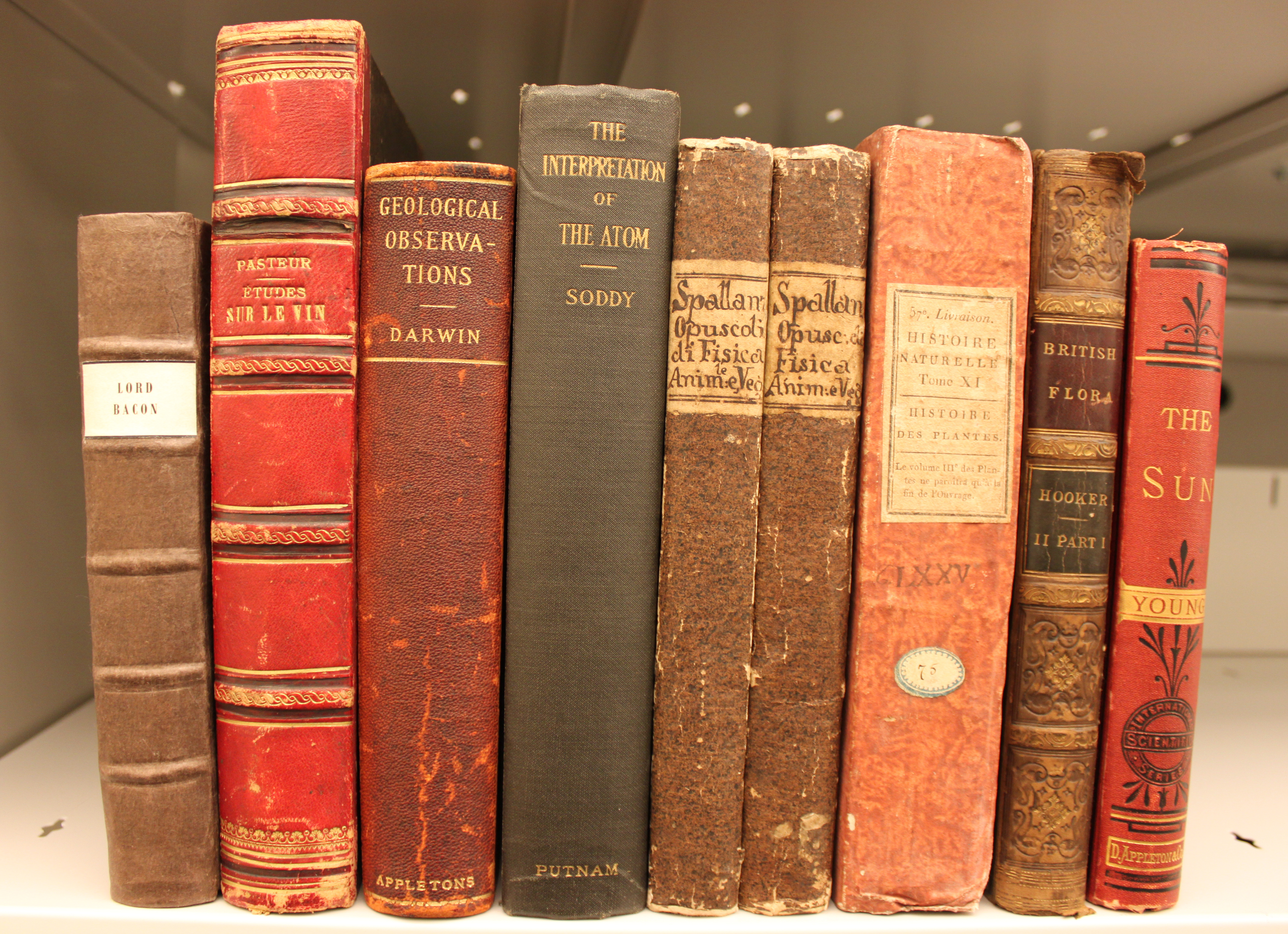
We are like dwarfs sitting on the shoulders of giants. We see more, and things that are more distant, than they did, not because our sight is superior or because we are taller than they, but because they raise us up, and by their great stature add to ours.
Attributed to Bernard of Chartres by John of Salisbury, Metalogicon
The idea of “standing on the shoulders of giants,” (first attributed to the medieval theologian Bernard of Chartres and later employed by Sir Isaac Newton), aptly describes the progression of scientific discovery. Each generation of scientists “sees” further, lifted up by the stature of the scientists from the previous generation. And so, our greater knowledge advances forward, from the first articulation of the scientific method to space exploration to whatever the future will hold.
Since October, the Special Collections Research Center has been displaying numerous rare books, archival material, and photographs relating to the history of science outside Room 2400 in Fenwick Library. The exhibit “Advances in Science, 1586-1999: Standing on the Shoulders of Giants” closes at the end of January, which gives you one last chance to check it out!

Calculation of the sun’s mass (1881) from Young, C.A., The Sun, QB521 .Y68 1881, Special Collections Research Center, George Mason University Libraries
Included in the exhibit are works by Euclid, Sir Francis Bacon, Louis Pasteur, Carl Linnaeus, Lazzaro Spallanzani, Charles Darwin, Rachel Carson, and Harold Morowitz. Fields covered include biology, chemistry, astronomy, physics, engineering, geometry, and early computing.

Telescope from the 1876 volume by the South Kensington Museum, Handbook to the special loan collection of scientific apparatus, Q185 .V54 1876a, Special Collections Research Center, George Mason University Libraries
This is a snapshot of some of the materials relating to the history of science in the Special Collections Research Center. For more information or to view some of these materials in person, come visit the Special Collections Research Center in Room 2400 of Fenwick Library.
Follow Special Collections Research Center on Social Media at our Facebook, Instagram, and Twitter accounts. To search the collections held at Special Collections Research Center, go to our website and browse the finding aids by subject or title. You may also e-mail us at speccoll@gmu.edu or call 703-993-2220 if you would like to schedule an appointment, request materials, or if you have questions. Appointments are not necessary to request and view collections.

